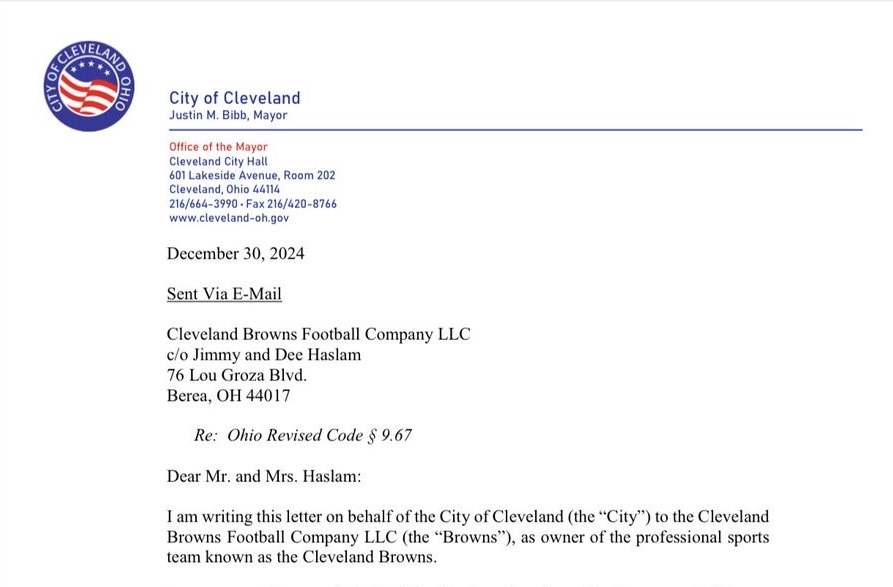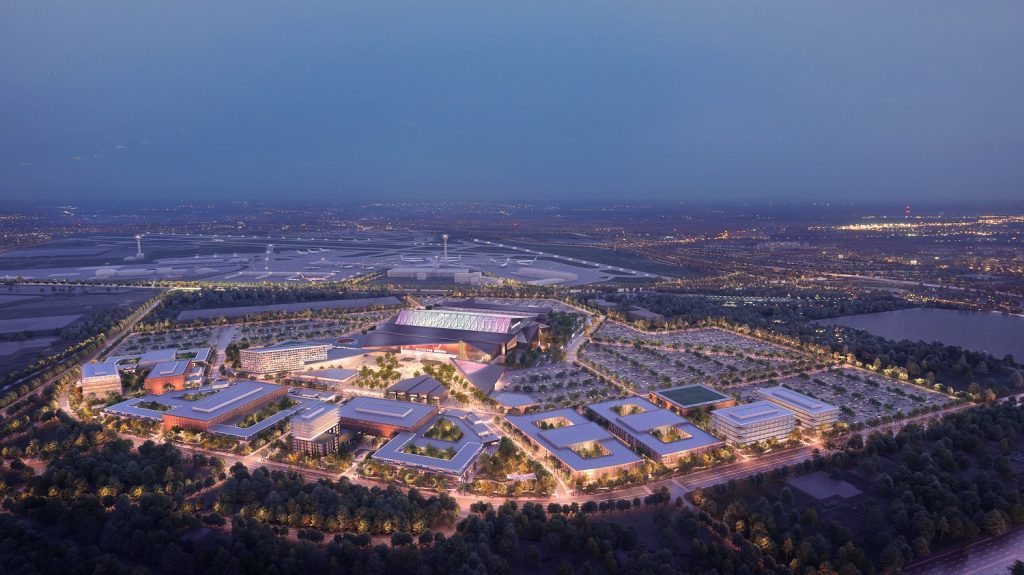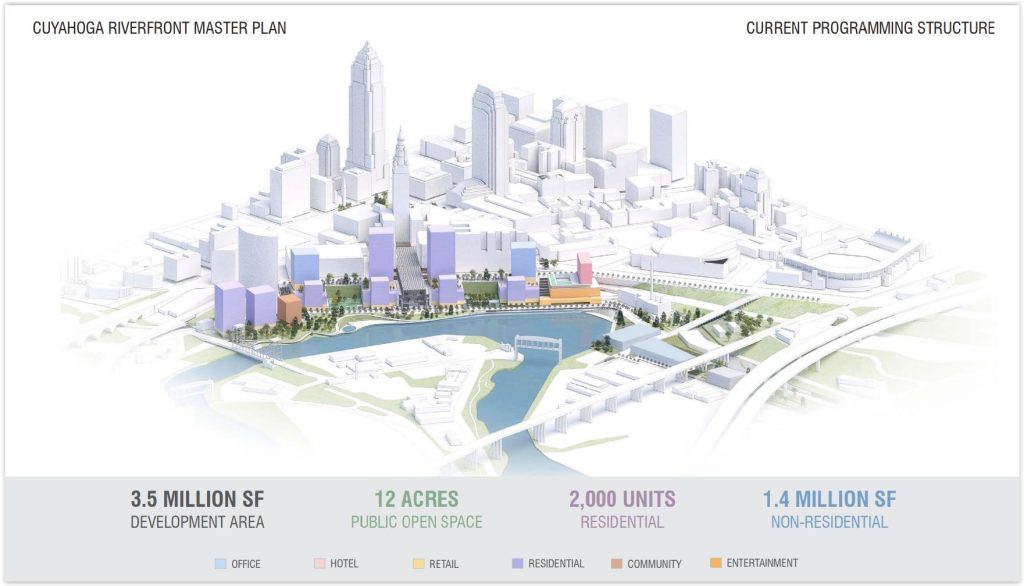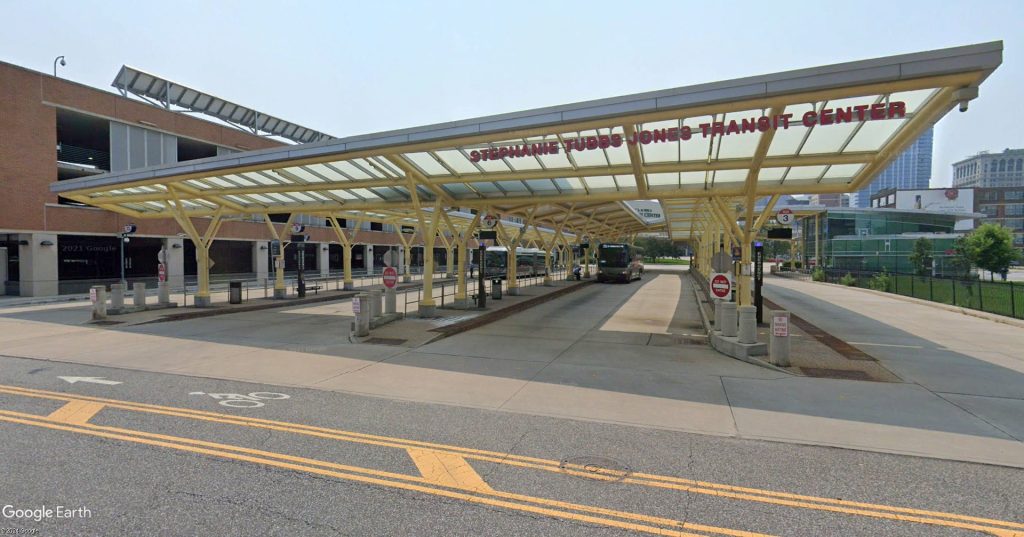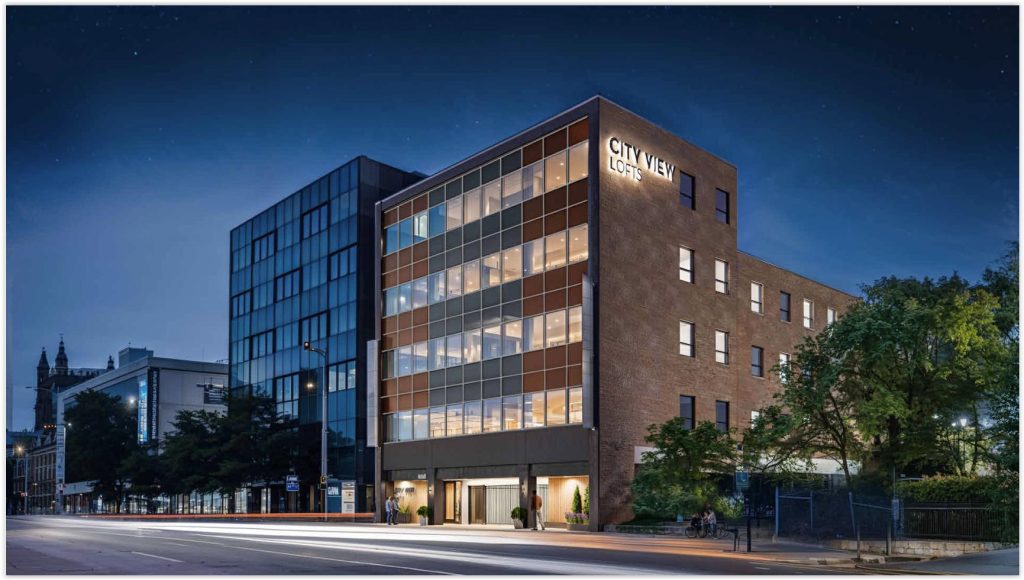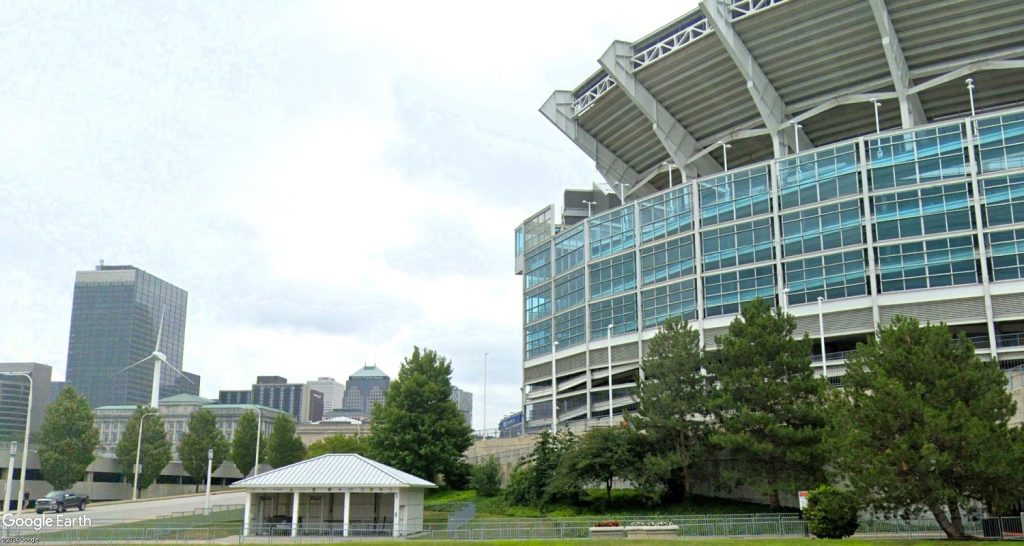
Cleveland City Hall, below the wind turbine, and Huntington Bank Field at right, home of the Cleveland Browns, may be within sight of each other but they are far apart on any agreement regarding where the professional football team will play its home games after the 2028 season (Google). CLICK IMAGES TO ENLARGE THEM.
Copy of Bibb’s full letter reprinted here

Ten days ago, NEOtrans broke the story that the city of Cleveland intended to pursue invoking “the Modell Law” against the Cleveland Browns in order to make them keep playing their home games within the city limits — and especially Downtown Cleveland. Today, the Cleveland Mayor Justin Bibb sent a letter to the Browns’ owners outlining the terms of how the city intends to do that. And now the Browns’ owners have responded.
“We received and are reviewing the correspondence from Mayor Bibb,” said Peter John-Baptiste, chief communications officer of the Haslam Sports Group, owner of the Browns, in a written statement. “As we stated months ago when we filed our lawsuit seeking clarity on the ‘Modell Law,’ the statute and the city’s actions create uncertainty and do not serve the interest of Greater Cleveland. As the city knows, after the 2028 season, we will have fulfilled our lease obligations at the current stadium.”
“We are determined to create a project to solve our long-term stadium planning by building a new enclosed Huntington Bank Field and adjacent mix-used development, resulting in a substantial increase in premier large-scale events and economic activity for our region that will generate significant revenue for the city, county and state. We intend to respond directly in due course to Mayor Bibb’s letter and have no further comment at this time,” John-Baptiste added.
Today’s letter from Bibb was sent via E-mail to the Cleveland Browns Football Company LLC in care of owners Jimmy and Dee Haslam at their headquarters in the Cleveland suburb of Berea. It was in reference to a state law, Ohio Revised Code, Section 9.67, noted hereafter as § 9.67. The letter states verbatim:
Dear Mr. and Mrs. Haslam: I am writing this letter on behalf of the City of Cleveland (the ‘City’) to the Cleveland Browns Football Company LLC (the ‘Browns’), as owner of the professional sports team known as the Cleveland Browns.
As you are well aware, in 1996, following the relocation of the Browns to Baltimore, the Ohio General Assembly enacted, and the Governor signed, Ohio Revised Code § 9.67. Known as the Model Law, the statute provides in full:
No owner of a professional sports team that uses a tax-supported facility for most of its home games and receives financial assistance from the state or a political subdivision thereof shall cease playing most of its home games at the facility and begin playing most of its home games elsewhere unless the owner either:
(A) Enters into an agreement with the political subdivision permitting the team to play most of its home games elsewhere;
(B) Gives the political subdivision in which the facility is location not less than six months’ advance notice of the owner’s intention to cease playing most of its home games at the facility and, during the six months after such notice, gives the political subdivision or any individual or group of individuals who reside in the area the opportunity to purchase the team.
R.C. § 9.67. The Browns play home games in Cleveland at “a tax-supported facility” now known as Huntington Bank Field (“HBF”). Indeed, during roughly the last 20 years, the City has spent over $350 million for the construction, repair, and maintenance of HBF. Nevertheless, the Browns have also expressed publicly a desire to move.
Yet, to date, the Browns have not provided the City or others with the opportunity to purchase the team, as required by law. And if that opportunity were provided, the City intends to take a leadership role in assembling an “individual or group of individuals who reside in the area” in purchasing the team.
If the Browns intend to begin the six-month window during which the team must be offered for purchase, please identify (1) the date on which the team will be offered for purchase and (2) a date and time at which we can send our representatives to begin inspection and evaluation of the Browns’ records, as defined in R.C. § 1706.01.
Please respond to this letter by January 9, 2025. If you do not formally respond to this letter by that date — or if you inform the City that you do not intend to the comply with the R.C. § 9.67 or the terms of the Browns’ contractual obligations — the City intends to take appropriate legal action.
Respectfully,
/s/
Justin M. Bibb, Mayor, City of Clevelandcc: David A. Yost, Ohio Attorney General; Kip T. Bollin, Thompson Hine LLP; Justin E. Herdman, Jones Day
Two weeks ago, the city hired law firm Jones Day to represent it in this matter. The pending invocation of the Modell Law is a reason why the city has asked for and received a 30-day extension to answer the Haslam Sports Group’s lawsuit in U.S. District Court claiming the Modell Law is unconstitutional.
Cuyahoga County Executive Chris Ronayne was out of the office and unavailable for comment. Cleveland City Council President Blaine Griffin confirmed to NEOtrans 10 days ago that this invocation of the Modell Law was coming. But he downplayed the breaking news angle, saying that City Council had voted in October to authorize Bibb’s administration to use the Modell Law if necessary to keep the Browns in Cleveland.
HSG and the Browns have publicly shared renderings and plans for an enclosed $2.4 billion stadium and $1.2 billion in supportive development in suburban Brook Park. They also have created plans for a renovated Huntington Bank Field in downtown but declined to share them publicly, even though that stadium is city owned, citing the plans as proprietary.
“Cuyahoga County cannot afford to subsidize the creation of a second downtown with taxpayer dollars,” Ronayne said in a written statement earlier this month. “I continue to ask for the downtown stadium renovation plan to be shared publicly and for the Cleveland Browns to come back to the negotiating table with the city of Cleveland to build off of the billions of dollars of investments already made in the downtown core.”
END

